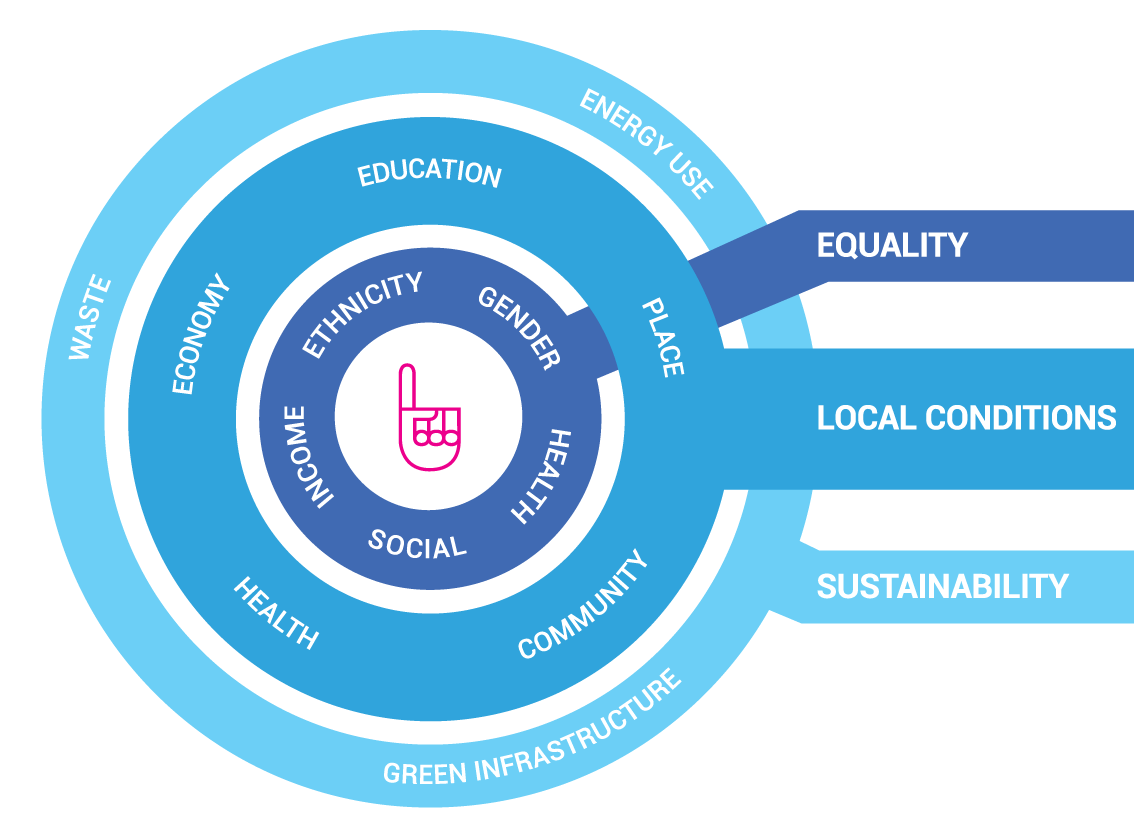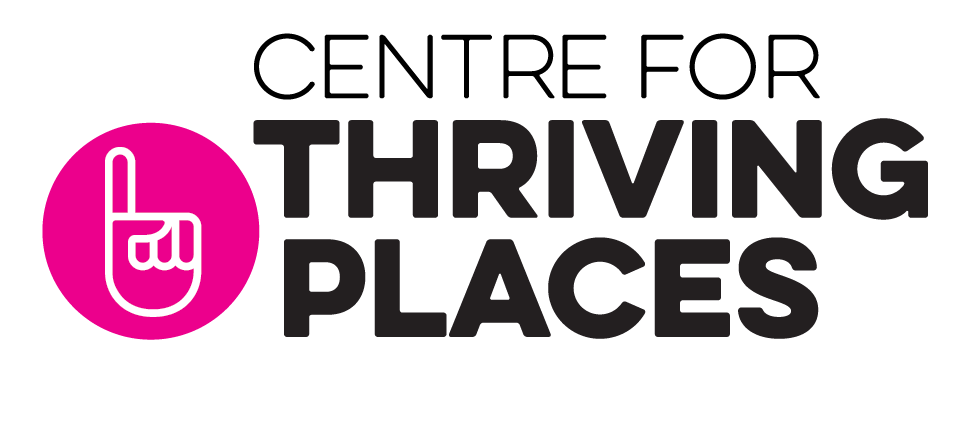Using the TPI
The Thriving Places Index (TPI) is a new compass for the 21st century. It supports decision makers across sectors to assess and prioritise policy, based on the impact it has on the wellbeing and sustainability of people and communities.
It provides:
- Shared set of goals for cross-sector, joined up, multi-disciplinary working.
- Framework for better policy-making, budgeting, planning, procurement, commissioning, monitoring and collaborative placemaking.
- Powerful communication tool to engage citizens and diverse stakeholders in a sustainable wellbeing approach to change.
- Local and asset-based means of measuring, tracking and evaluating progress on projects and interventions with on a range of interconnected priorities (including the Sustainable Development Goals).
- Means to balance the competing priorities inherent in a sustainable and just approach to local economics.

The framework itself is being used every day by communities, organisations large and small, funders and local governments to help guide policy, decision making, learning and action at all levels. It can be adapted or enhanced to create bespoke frameworks and tools that reflect the particular needs and priorities of each place, community or funder – built on the solid foundation of the TPI rigour.
Get in touch with CTP if you’re interested in working with us to:
- Use or adapt the Thriving Places Index to create a bespoke Wellbeing Economy framework for YOUR place
- Get support to create and embed a wellbeing approach across your organisation or local region including tools, guidance, training, facilitation and support
- Research the connections between the many drivers of a thriving place – we make the wealth of evidence and research out there accessible and applicable to where you are.
Thriving Places Index consultancy
We can offer support with:
- Bespoke frameworks, evaluation tools and data to support your place or organisation to better measure, understand and improve wellbeing, equity and sustainability
- Embedding change in your organisation – Centre for Thriving Places and our team of thematic expert associates are ready to support your organisation, department, community or place to embed new ways to action a wellbeing economy approach.
- Digging into the data – We can help you understand, analyse and use theat data to improve performance and impact.
- Researching the important connections between the different drivers of wellbeing including good jobs, housing, clean air, equitable access to services, local wealth creation and so much more. Our researchers have supported everyone from national and local governments to local community groups and funders
- Scaling impact – The TPI can be used alongside Centre for Thriving Places’ pioneering Happiness Pulse tool by organisations of any scale – from micro community projects to global companies or governments. Together they can measure not just the conditions for wellbeing, but how people are actually doing.

Sector spotlight: Local Authorities
The TPI provides Local Authorities with a solution to a number of significant challenges including:
- Aligning priorities across policy silos and departments and communicating those priorities to citizens.
- Providing leadership within a new partnership-based delivery model, where local government has moved from being the sole provider of services to the facilitator of them.
- Moving from symptoms to causes, providing insight into the wider determinants of equitable and sustainable wellbeing.
- Delivering progress whilst addressing the 21st century’s twin crises of rising inequality and climate change.
Sector spotlight: funders and commissioners
The TPI supports funders and commissioners across a range of their key priorities including:
- Measuring impact across and between traditional funding silos and supporting flexible, collaborative approaches to delivery.
- The need for metrics to work hard – to aid learning and impact for both funders and their grantees and be accessible, meaningful and motivating.
- Supporting change at all levels of a place, from citizens and communities to society and planet, and working in local, context-specific ways.
- Consistently tracking social impact in order to share learning.

